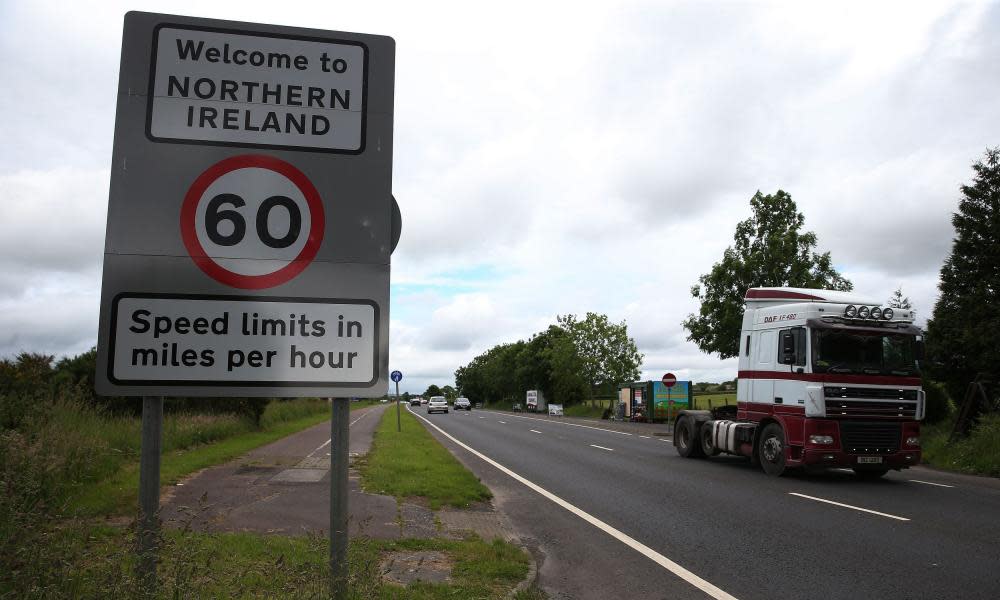More security on Irish border could mean civil disobedience, Sinn Féin says

Any attempts to increase security around the Irish border because of Brexit could lead to civil disobedience, a Sinn Féin MP has said at a rare republican party press conference in Westminster.
Chris Hazzard, the MP for South Down, said there could be a strong reaction from some local people to customs posts or other “hardware” being introduced after the UK leaves the European Union.
“If we see a situation where we are going to have border customs posts or any particular type of hardware, I would think that would be something people won’t want,” the MP said.
“And I go even further. An awful lot of the focus has been on maybe dissident republican organisations and threats, but it is wider than that – it goes right down to a feeling of civil disobedience.
“When you talk to normal people in civic society they are very, very angry and frustrated at even the thought of a customs post going up. So I think you will see widespread distaste for any notion of a hardened border, and I mean that from civic society. That’s the strength of feeling from it,” he said.
Ireland is seen as a key obstacle to proceeding to negotiations about a future trade relationship with the EU at a December summit, with the Irish government dissatisfied with the options offered so far to prevent a hard border with Northern Ireland.
Hazzard’s warning came at a launch of a briefing paper on the Good Friday agreement, alongside the MEP Martina Anderson.
At the event, Hazzard also predicted that the EU would block progress on trade talks, a position he supported. “Not only do I think that is the right thing to do, but I genuinely do believe that’s the position Europe is currently at. And even if it is not, I think the strong will and desire is that then Ireland will use the veto,” he said.
Sinn Féin won seven seats at the last UK general election but the republican party, which supports a unified Ireland, has a longstanding policy of not taking up its seats at Westminster.
When asked if the party would participate in the Commons to oppose a Tory/DUP “hard Brexit coalition”, Hazzard said he “could never foresee” such an event even if parliament dropped its demand that MPs pledge allegiance to the Queen.
“It simply is never going to happen. We are Irish republicans. The oath of allegiance is one part of it, but if you got rid of the oath today, Sinn Féin would still not take up seats. It is also about national sovereignty. It won’t be happening any time soon or any time in the future that I could ever foresee,” he said.
Anderson, a Sinn Féin MEP, also called for the de facto deputy prime minister, Damian Green, to explain whether, as reported in the Times, he had offered to send Tory money to fund a Democratic Unionist party special adviser. “We already have a situation with the assembly that we are trying to clean up,” she said.
“We do not the need the Tories pouring on more shady dark deals in a world that already needs to be dealt with and cleaned up to give confidence to the people in the institutions of the assembly.
“The Tories should not be engaging in that way because we are in a difficult enough place without them coming along with revelations like that.”

 Yahoo News
Yahoo News 
